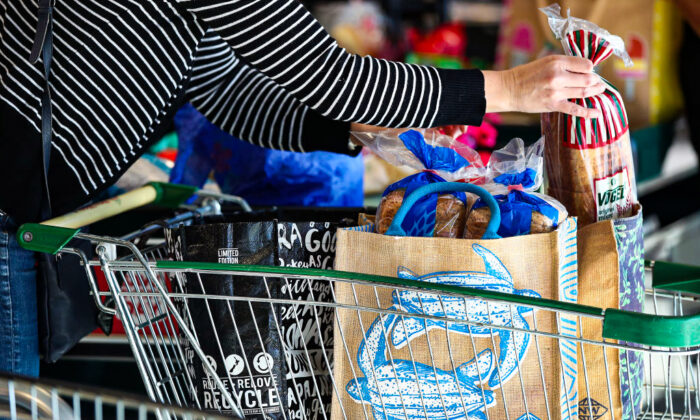Two large chains—one Australian-owned—dominate the sector, but Nicola Willis is hoping to bolster competition and maybe encourage new entrants.
New Zealand’s Minister of Economic Growth Nicola Willis is prepared to roll out the welcome mat for a third major supermarket retailer to shake up the country’s grocery sector.
During her speech at the University of Waikato’s Economics Forum, Willis released an 80-point economic growth plan focused on education, competition, and innovation.
The New Zealand grocery sector is dominated by Australian-owned Woolworths and local company Foodstuffs, a cooperative of 22,000 owner-operators who mostly trade under the Pak’nSave, New World, Four Square, and Gilmours brands.
Foodstuffs is split into two nominally independent parent companies, one in the North Island and one in the South. They were recently refused permission to merge due to fears that it would further reduce competition.
“Studies have shown that New Zealand shoppers pay more for kitchen staples than their counterparts in the United Kingdom, Ireland, and Australia,” Willis said. “The market lacks competition with three large entities, two of whom don’t compete in the same island, effectively controlling 82 percent of the market.
“The weekly supermarket shop makes up a significant proportion of most people’s weekly budget and contributes massively to their cost of living.
“We need more competition to put downward pressure on prices and deliver a better deal for shoppers.”

What Are New Zealanders Paying?
A Commerce Commission study last year found that the average New Zealand household was spending $214 a week (US$120.80) on groceries, or about 13 percent of their total weekly budget.
Between 2007 and 2019, the average weekly grocery spend increased 7.3 percent every three years, but 2024 data showed a leap of 28.9 percent. Prices increased more than any other common household bill between 2019 and 2023, primarily due to the rising cost of fruit and vegetables.
More recently, though, it is dairy product prices that have been attracting attention.
The price of a two-litre bottle of milk increased from $3.84 in 2023 to $4.25 in 2024, and it’s not uncommon for New Zealanders to pay $10 for a one kilogram block of cheese or a 500 gram tub of yoghurt.
Barriers Include ‘Land Banking’
Willis says the government will respond by removing “unnecessary regulatory hurdles” that discourage new entrants from entering the market. It could even assist them in accessing suitable land and properties for development and attracting international capital.
One of the major barriers to competition is that the duopoly has bought up sites which would be suitable for competitors and “land banked,” so overcoming could involve either rezoning land to allow for large-scale commercial construction, or forcing divestment.
Willis said additional steps to introduce more competition could include cracking down on predatory pricing and ensuring all competitors have fair access to products.
Minister Wants to Work With Prospective 3rd Competitor
Speaking to reporters on a live stream after her speech, the minister did not commit to any specific regulatory changes, saying, “I don’t want to presuppose what that looks like and therefore close out options.
“I want to get on and work with a third entrant to get them in the door,” she said, “And that will need a bespoke arrangement that will be bespoke to that entrant.”
“I’m opening the door. I’m saying let’s do a deal.”
That may include “helping them” with the Overseas Investment Act requirements, but again, she was not specific about how that would work.
“I’m willing to give them the VIP treatment because you know who wins from that? New Zealand shoppers,” she said.
‘Painfully Weak’: Labour
Labour’s commerce and consumer affairs spokesperson Arena Williams called Willis’ plan “painfully weak with no new ideas, no real plan, and no relief for Kiwis struggling with rising grocery costs.
“Labour … banned restrictive land covenants, enforced mandatory wholesale access, and introduced a Grocery Commissioner to hold the industry to account,” she said.
“If National [Party] was serious about tackling the supermarket duopoly, it would build on the real progress Labour made. Instead, all Nicola Willis is offering is no new ideas, no deadlines, and no clear policies.
Sue Chetwin of the Grocery Action Group said that while the minister’s commitment was welcome, it would need to be translated into action.
She suggested forcing the supermarket giants to split off parts of their business, for example having Foodstuffs divest its Four Square stores to create the beginning of a competing chain.
The most recent attempt to break the hold of Woolworths and Foodstuffs was an online-only supermarket venture, Supie, which operated on a membership-based subscription model with an annual fee of $99.
Launched in 2021, it failed two years later when it ran out of cash due to a lack of sales volume and an inability to secure investment.
The company was subsequently liquidated, owing over $2.1 million to over 4,000 creditors, which included Foodstuffs and Woolworths.

